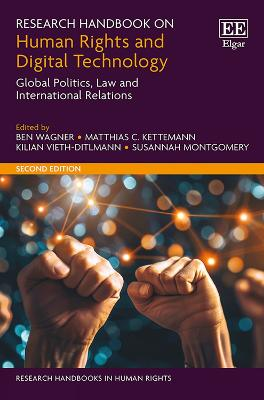
Bringing together perspectives from academia and practice, this second edition Research Handbook provides fresh insights into debates surrounding digital technology and how to respect and protect human rights in an increasingly digital world.
Adopting an interdisciplinary approach, expert contributors cover the issues posed by the management of key internet resources, the governance of its architecture and the role of different stakeholders. The legitimacy of rule making and enforcement, and the exercise of international public authority over users are also key themes. New and revised contributions expand on digital copyright, the impact of digital cultural sovereignty on cultural heritage, the geopolitical influence of social media platforms such as TikTok, and cutting-edge cybercrime regulations. Chapters have been updated to detail events and regulatory changes that illustrate the impact of state cybersecurity measures on personal freedoms.
This Research Handbook is a vital read for researchers and students in law, human rights, international politics and technology studies. Policymakers seeking an understanding of human rights in technology will also find this book a highly useful resource.